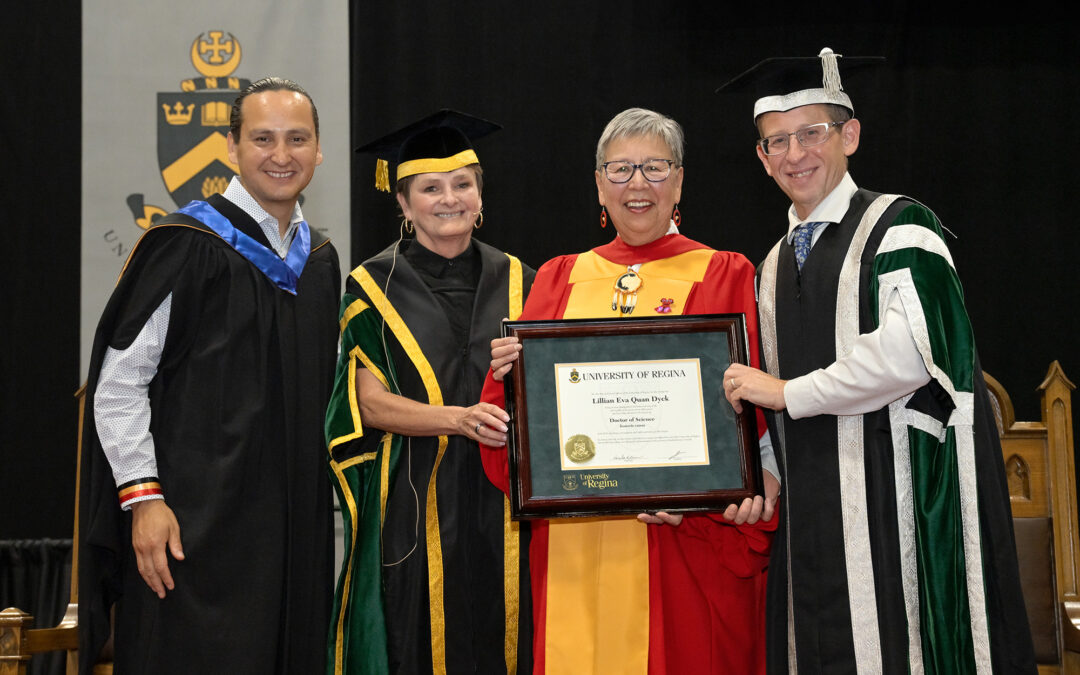Photo: Dr. Dyck awarded an Honourary Doctor of Science (DSc) from the University of Regina’s 2025 Spring Convocation / University of Regina Photography
By Lori Deets
MBC News Freelance Correspondent
First Nations University of Canada
The Honourable Dr. Lillian Eva Quan Dyck has been awarded an Honourary Doctor of Science (DSc) from the University of Regina, marking yet another milestone in a career defined by firsts.
Dr. Dyck received the honour during the university’s 2025 spring convocation. It’s a recognition that celebrates not just her achievements in public service, but her decades-long contribution to science—an area she says has often gone overlooked.
“When I was offered the choice between an honourary Doctor of Laws or Doctor of Science, I thought, well, it would be lovely to get the DSc,” Dyck said. “That part of my career was much longer and just as significant—it just wasn’t as public.”
Born in Saskatchewan to a Chinese father and Cree mother from the Gordon First Nation, Dyck holds a BA in chemistry, an honours degree in biochemistry, a Master of Science, and a PhD in biological psychiatry—all from the University of Saskatchewan.
She became the first Indigenous woman in Canada to earn a PhD in the sciences.
Her academic and professional path was not without hardship.
“My science career was the hardest part of my journey,” she said. “Those negative experiences forced me to look deeply inside myself and reclaim my identity.”
Dyck has spoken openly about the shame she carried early in her life—shame rooted in colonial stereotypes and secrecy around her Indigenous identity.
“It was almost like a dirty little secret,” she said. “Indians were seen as dirty. But once I started to address that, more strength came.”
She credits reconnecting with her culture—and seeking guidance from Elders—as turning points in her life.
In 2005, Dyck was appointed to the Senate of Canada by then-Prime Minister Paul Martin. She served until 2020 and was one of the few Senators with a science background. Her work in the Senate focused heavily on Indigenous and women’s rights, mental health, and justice reform.
Dyck played a leading role in advancing Bill S-3, which helped restore Indian status to thousands of women who had lost it due to gender-based discrimination under the Indian Act. She also advocated for stronger penalties in cases of violence against Indigenous women and brought national attention to the crisis of Missing and Murdered Indigenous Women and Girls.
“Representation matters,” Dyck said. “Because if you’re not there, things that affect people like you may never get addressed. I’m not bragging. I’m just saying that’s why it matters.”
Dr. Dyck’s contributions have opened doors for Indigenous women in science, academia, and government. Her latest honour, she says, is a reminder that visibility—and validation—still matter.
“You’re so used to being seen as unequal,” she said. “Let alone being honoured.”
